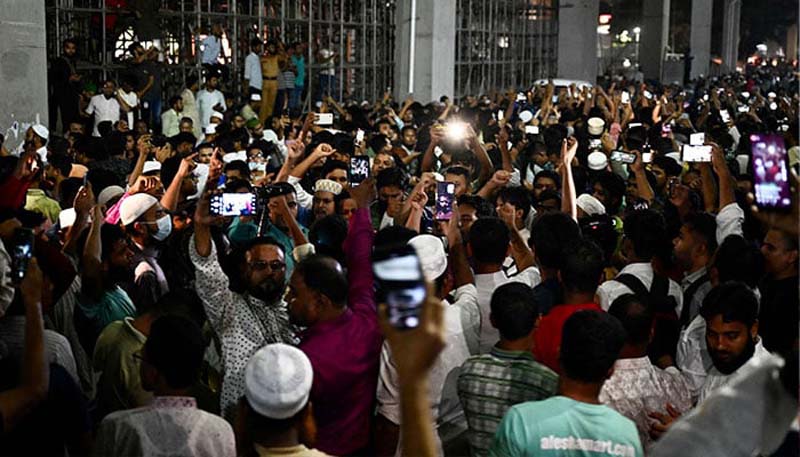DHAKKA: The death of a Jamaat-e-Islami Bangladesh leader Delwar Hossain Sayedee has sparked outrage among the masses with protesters taking to the streets chanting anti-government slogans.
83-year-old Sayedee, the vice president of Bangladesh’s opposition party Jamaat-e-Islami, passed away in a prison hospital on Monday evening. The prominent leader’s demise comes over a decade after his conviction by a war crimes court, an event that triggered some of the deadliest political unrest in the country.
Supporters, grieving the loss of Sayedee, voiced their resolve not to let his bloodshed be in vain. Many pointed fingers at the government of Prime Minister Sheikh Hasina, accusing it of contributing to the circumstances that led to the leader’s demise. These sentiments are deepened by the upcoming general elections scheduled for January, adding a layer of political complexity to the crisis.
Delwar Hossain Sayedee’s health had been a concern for some time, as he was admitted to the hospital after experiencing a heart attack while incarcerated in Kashimpur Prison, located outside the capital, Dhaka.
“He faced another heart attack today (Monday) at 6.45 pm (1245 GMT) and died at 8.40 pm,” hospital director Brigadier General Rezaur Rahman told AFP, adding he had had five stents inserted into his arteries.
Jamaat-e-Islami announced Sayedee´s death on its Facebook page, where it accused the authorities of “slowly turning him into a martyr without treatment in the prison”.
He was sentenced to death in 2013 by a war-crimes tribunal on eight charges of murder, rape, and persecution of Hindus, triggering deadly protests by thousands of supporters nationwide, leaving more than 100 people dead.
The party said tens of thousands of its supporters were arrested in a subsequent crackdown, and the party was only this year able to hold public protests again.
In 2014, Bangladesh´s Supreme Court said Sayedee should spend “the rest of his natural life” in jail for crimes during the 1971 liberation war with Pakistan.
Delwar Hossain Sayedee shot to prominence in the 1980s after he started preaching in some of the Muslim-majority nation´s top mosques.
In his heyday he would draw hundreds of thousands to his sessions and CDs of his speeches were top sellers. Even people who were not supporters of Jamaat attended his preachings.
Jamaat-e-Islami was banned for much of the 1970s for its support of Pakistan during the war, but by the 1990s it had become the country´s third-largest party and the biggest religious outfit.
Political analysts credit Delwar Hossain Sayedee´s preaching for transforming the party into a major force.


Comments are closed.